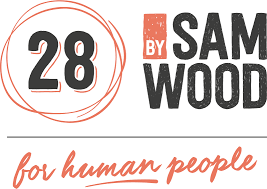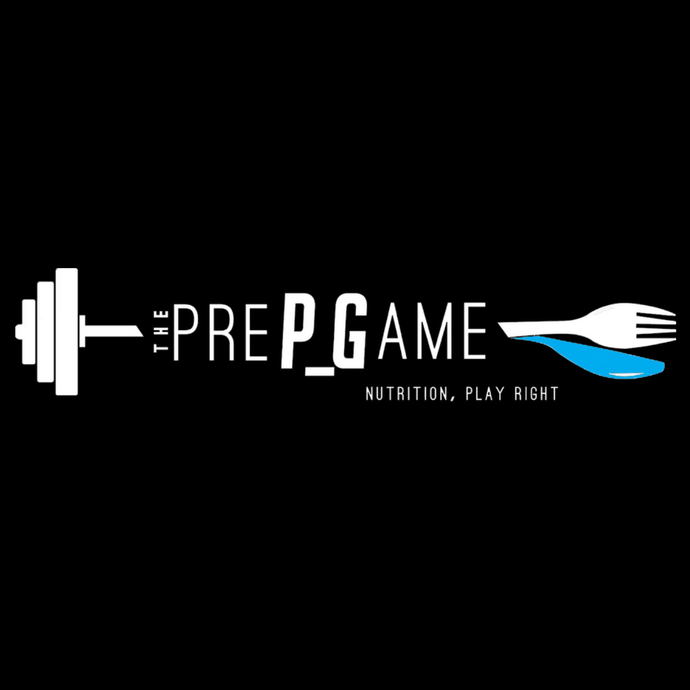If there is one thing that everyone seems to agree on, it's that too much sugar is not great for our health. But are natural sweeteners like honey and maple syrup any better for you than everyday white table sugar? There is plenty of information out there that would convince you to choose a natural sugar source over refined. But if you look at the less processed options more carefully, it is quite obvious that they may not be quite as sweet for your health and weight as they are for your palate.
NATURAL INSTINCTS
Over the past few weeks I have been fascinated by the plethora of back-to-school lunchbox ideas on Facebook. Some are just suggestions, others are quick an easy recipes and many are photos of entire lunchboxes. Of the lunchboxes I saw, many were of the bento box-style variety, packed by families who follow Paleo, low-carb, LCHF*, GAPS*, JERF* or any other popular way of eating that is described by an acronym these days (*see end of the article for definitions). The common denominator of many of these dietary approaches are that they are as natural and unprocessed as possible and often ban carbohydrate from grains, but not carbohydrates completely.
I love the bento box style lunchbox, and can't wait to get them for my boys, but the thing that interested me most about the lunchboxes I viewed was that although there were no grains included, a quick visual assesment indicated that carbohydrate, as sugar, was well and truly present. This got me thinking about how going grain-free can subsequently lead to increased sugar intake.
The small individual compartments of the bento boxes were impressively jam packed with vegetable sticks, cherry tomatoes, chopped fruit, maybe some cheese or yoghurt and some leftover cold meat or chicken (no nuts due to the imporant nut-free school policies). Terrific and great examples of nutritious foods for a child throughout a school day, or for an adult! But what also seemed to feature highly in these boxes where substantial quantities of grain-free delights, think seed/fruit slices and balls (every nutrition website seems to have a recipe for a ball of some sort), 'healthy' slices and cookies, even chocolate mousse! Not just a small serve, but enough to make up a fair portion of the healthy lunchbox. Many of these 'healthy' type of sweet concoctions use natural sugars to help bind the ingredients together. Syrup-form is common, but dates are also often used as the main ingredient. Nothing against dates, they do contain a range of nutrients, but they are also up towards 70% sugar. Actually most dried fruit has greater than 50% sugar (compared to fresh fruit which is usually <10%, even bananas, with the highest carbohydrate concentration of all the fruits, is around 18%). So is using dates, or other natural type sugar sources, as the sweet component really any better than using other types of sweetener?
NUTRITIOUS NATURAL SUGARS?
White sugar, like the type you put in your cup of tea, is often labelled as a toxic poison, while the natural options like honey, agave, coconut sugar, rice syrups and maple syrup are increasingly being added in many homes as staple kitchen cupboard ingredients. The theory behind the use of these natural sweeteners seems to be that less processing will retain some of the trace vitamins and minerals and may also have a reduced impact on blood sugar levels.......true or false? Mostly false. If you are relying on honey or maple syrup for your vitamin and mineral needs then you are in trouble. Adding any of the less processed sweeteners does not improve the nutrition value of a food either. The 'trace' amounts of nutrients in these sweeteners are exactly that, trace amounts, so small that they will not contribute significantly to overall nutrient intake. But they will contribute significantly to overall sugar and kilojoule intake, and perhaps even have implications for dental health. The chewy, sticky type balls and slices with natural-based sugars and dried fruit that can stick to the teeth for longer are far more likely to contribute to dental issues compared to a piece of wholegrain bread or small serve of rice.
ARE ALL SUGARS THE SAME?
Can we throw all sweeteners into the one basket as 'just sugar and kilojoules'? Not quite, but just about.
HONEY has always been a standout in the sweetener stakes, with research in humans showing potential health benefits with regard to anti-inflammatory and anti-biotic effects (note - it won't cure cancer). The only thing is, most of the studies on honey involve consumption of a lot of honey, 3-5tbsp per day. That is up towards 100g of honey per day, which is 20 teaspoons or over one third of a cup - a lot of honey. Many of the health claims related to honey require further research to support them, and to determine a useful dose. In terms of the type of sugar in honey, it contains glucose and fructose in a 1:1 ratio, same as table sugar. So depending on your overall nutrition requirements, the potential benefits of honey may be outweighed by the additional sugar and kilojoule effects.
AGAVE, agave nectar, or agave syrup is heavily promoted as a natural and low GI sweetener, but they forget to tell you that the reason it has a low GI is because this syrup is loaded with fructose, potentially around 85% fructose. Great, it's low GI, but overloading on fructose is probably not a great health choice. Yes, many fruits contain fructose, but in very, very low concentrations compared to a sugar syrup like agave, and fruit is tied up in a pretty little package with lots of fibre, water and nutrients. A lot of the agave available for sale is highly processed too, not as natural as it may claim.
MAPLE SYRUP is the best thing ever on pancakes (in my opinion!), nothing else tastes quite like it. But amongst all that deliciousness is lots of sugar, most of the sugar in maple syrup is sucrose. Sucrose is table sugar, maple syrup is over 2/3 table sugar, with some water and trace vitamins and minerals.
BROWN RICE SYRUP, or rice malt syrup, sounds so healthy. The word 'brown' is quite deceiving, most 'brown' or wholegrain foods are low GI. Brown rice syrup is the complete opposite, being high GI and bad news for blood glucose levels.
COCONUT SUGAR must be good for you, because coconut products are meant to treat everything from the common cold to cardiovascular disease, right?? Coconut sugar is 70-80% sucrose, basically just table sugar. It may have a slightly lower GI, but who cares, it's predominantly table sugar with a not-worth-mentioning tinge of nutrients.
There are plenty of other natural sweeteners out there, these are just some of the popular ones often used as a healthier substitute to sugar. Unfortunately there is not a lot of good news if you are trying to improve your nutrition by using white sugar alternatives.
ENJOY SWEETENED FOODS
Don't get me wrong, I have absolutely nothing against a little bit of sugar on a regular basis. I love the idea of making sweet snack options healthier (I made some cookies with oats, cranberries, brown sugar, honey, butter, eggs, a little bit of flour and some mini-choc chips on the weekend, but I don't make them every week). But don't be fooled into thinking that by using a 'natural' sugar it is necessarily better for you, in terms of health or energy levels. Using regular white or brown sugar, in small amounts as part of nutritious foods is absolutely fine!
If you are an athlete or someone who trains a lot, then your choice of carbohydrates may need a bit of planning and the type and timing of sugars can be critical to performance. But if you know me, you will know my thoughts on jelly lollies at half time....just because you are running around for an hour or two doesn't mean you need stacks of processed sugar products. One of my upcoming posts will address the more specific needs of active people when it comes to carbohydrates and sugars.
CHOOSE SWEETENERS WISELY
Choose your sweetener based on the taste and texture, not on health. Get nutrients from vegetables, fruits, lean proteins, nuts/seeds, dairy or alternatives and wholegrains (wheat-free if required), and enjoy sweet foods as part of eating beautiful, delicious food, being mindful with regard to your individual overall health.
Diet definitions:
JERF = Just Eat Real Food GAPS = Gut And Psychology Syndrome LCHF = Low Carb High Fat
If you enjoyed this article, sign up to my newsletter via 'Connect' at the bottom of the page for more nutrition updates, articles and recipes.



























